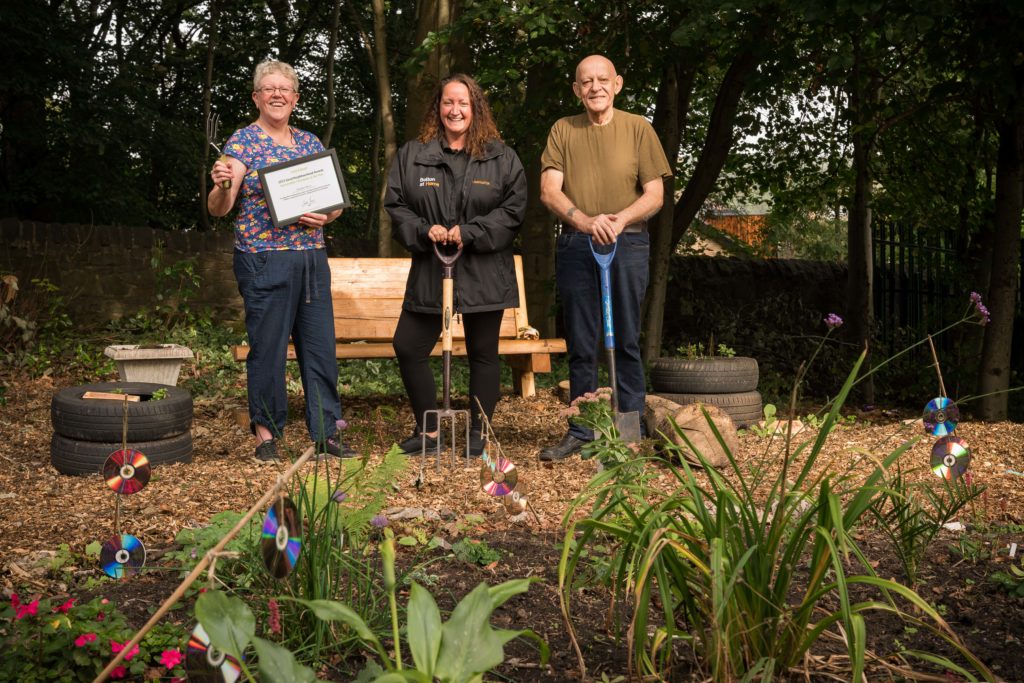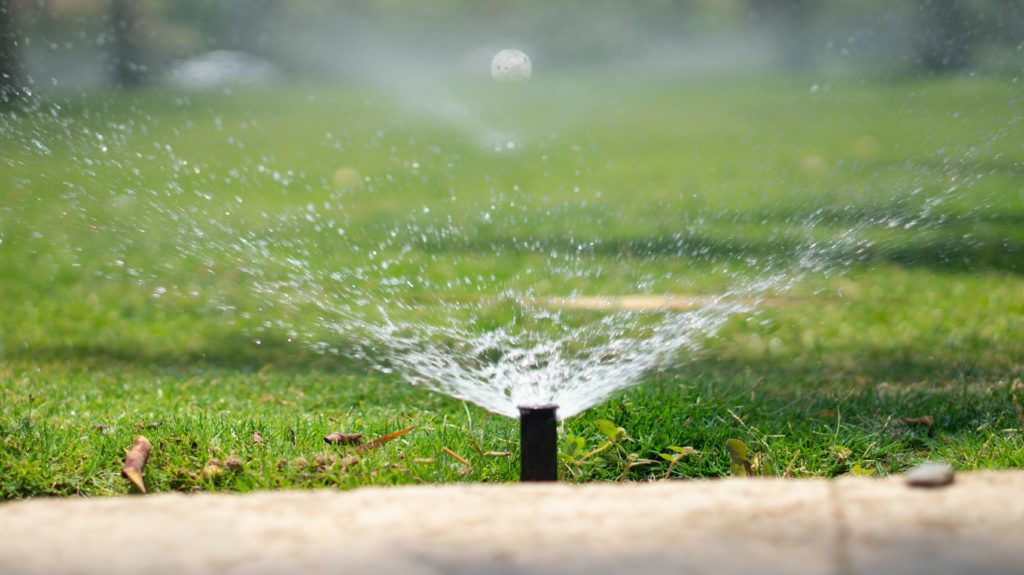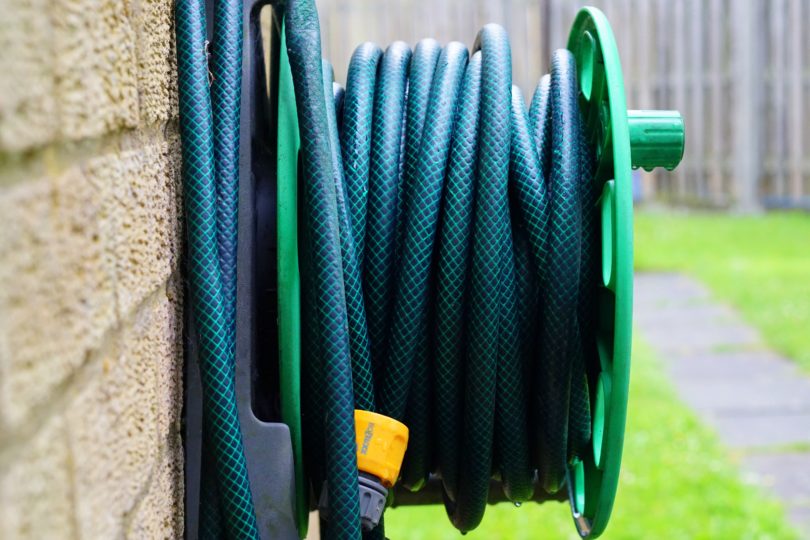As we face another heatwave this August and potential hosepipe bans, we sought advice from our green-fingered neighbours to help you look after your green space. Whether you have a garden, balcony or enjoy the local parks, here’s how you can keep your cool and plan ahead.
Heather Berry is a volunteer at Harper Lane Community Gardens in Bolton and won last year’s Neighbourhood Sustainable Champion award. She suggests:
- Add organic matter such as manure or compost to your soil before planting as it retains water. Mulch your soil if you can as mulch will reduce moisture loss. Just remember to water before you add the mulch.
- Water your plants well in their pots before planting and then continue to water after planting for a few days. After that, they should be OK in most conditions as they will be growing strongly. Water once a week when you have had limited rain and really soak them if you can.
- Keep new plants in pots away from your sunniest areas until you are ready to plant them out. Keep them all together to make watering easier and more efficient.
- Use hardy perennials such as geraniums in your borders. Once established they tend to do better in droughts than annual plants. Do your research on which plants to put where.
- Mix vermiculite into your soil, in pots or in the ground. Vermiculite retains water and then releases it when needed. Observe your garden to know which areas stay damp and which dry out quickly. Remember soil can be dust dry in the shade.

Luke Newcombe, who runs community gardening workshops in London through GrowN22 C.I.C and is a London National City Park Ranger says,
“We need to get drought planning now: Climate change is here and with the challenges that arise from extreme heat waves it is time to start adapting the thinking around watering and planting so you can maintain a garden”
Luke’s top tips:
- Store butts in a shady part of the garden to avoid water evaporation and connect to another if you have space.
- Get creative, use morning dew: For anyone with a grass lawn; you could collect the morning dew by using an absorbent cloth or material left overnight to soak up the dew to ring out in a bucket. It might sound tedious but will provide a source of water!
- Reuse water carefully: Bath or shower water can provide your garden with a regular source of water, just try not to include water with chemicals from soap.

Join your neighbours on Nextdoor and help cultivate a kinder world where everyone has a neighbourhood they can rely on.




Leave a Comment